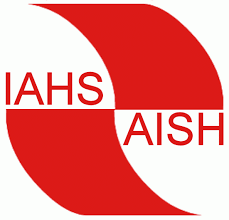|
W21 Facilitating Scientific contributions in water diplomacy and cooperation processes |
| Convener: Blanca Elena Jiménez-Cisneros | Co-Conveners: Abou Amani , Renee Gift , Nicole Webley |
|
Oral programme
/ Thu, 13 Jul, 08:30–15:30
/ Room Woodrooms
Poster programme
/ Attendance Fri, 14 Jul, 12:20–13:40
/ Room B2
|
Supporting commission(s) / organizations: UNESCO IHP, UNESCO Category 2 Institutes and Centers
UNESCO may cover the abstract processing charge for applicants for Session #26 upon request and pre-submission of the abstract to Renée Gift (r.gift@unesco.org) and Nicole Webley (n.webley@unesco.org), with priority given to students as well as individuals from developing and least developed countries.
With 40% of the world’s population living in transboundary rivers and lake basins and more than 90% living in countries that share basins (276 transboundary river basins and 592 transboundary aquifers identified so far), transboundary water and water diplomacy cooperation are critical for sustainable and peaceful development and ensuring water security.
Water cooperation is needed because aquifer systems, lakes, rivers and river basins do not necessarily follow state borders nor are adapted to the interests of different users. It is important to analyze conflicts of interests and challenges to cooperation between riparian countries and various water users to understand and promote the advantages of cooperation for sustainable solutions benefiting for all.
Closely intertwined with water cooperation, but with a focus on political and or decision making aspects, is water diplomacy. It is a dynamic process that enables countries, users, local and national governments to prevent, resolve or manage conflicts, and negotiate arrangements or agreements on the allocation and management of water resources. It seeks to develop reasonable, sustainable, fair and peaceful solutions to water allocation and management while promoting cooperation and collaboration around water and beyond. Water diplomacy can open up the cooperation dialogue to multiple stakeholders, including municipalities, provinces, civil society and minority groups. Water diplomacy and water cooperation involve a series of skill sets, such as hydrologists, environmentalists, economists, scientists, lawyers, policy makers and political scientists to the negotiation table with diplomats and decision-makers.
Evidence based decision making is critical for promoting water cooperation and water diplomacy and for developing and implementing water agreements for sustainable and peaceful management of transboundary water resources. Contributions, particularly interdisciplinary submissions are invited, that investigate the best practices, challenges and gaps and the role of science in water diplomacy and cooperation with a view of providing its future direction and implications for water security.
- Effective mechanisms for communicating science for water diplomacy and cooperation processes.
- Innovative ways of involving local communities, civil society and groups for example indigenous communities in water diplomacy and or cooperation efforts.
- Exploring best practices, challenges, emerging trends and future prospects in water cooperation/ diplomacy
- Identifying the potential of science to enhance and promote water cooperation and provide solutions in water diplomacy
- Data needs and challenges in water cooperation/ diplomacy
